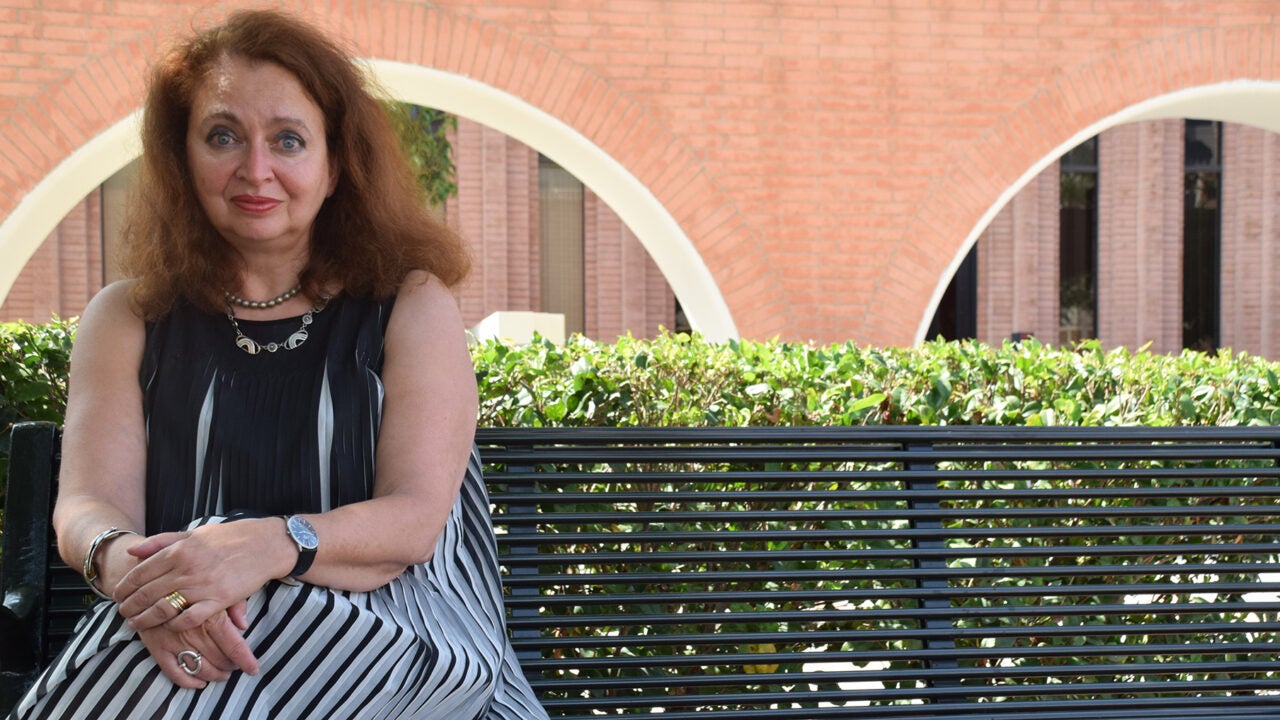Liliane Weissberg, 2015 Rutman Fellow, Studies Trauma as Narrative in the Visual History Archive

When watching a testimony in the Visual History Archive, Liliane Weissberg pays close attention to the words the survivor is saying, and, just as importantly, to the silences in between those words.
That’s because Weissberg, the 2015 USC Shoah Foundation Rutman Fellow for Research and Teaching at the University of Pennsylvania, looks at Holocaust survivor testimonies as examples of how survivors construct their own narratives in order to give meaning to their lives and experiences.
Weissberg is Professor of German and Comparative Literature and an affiliated faculty member of the Alice Paul Center for Research on Women, Gender and Sexuality at UPenn. Her fellowship at USC Shoah Foundation is preparing her to teach a new course in spring called “Witnessing, Remembering, and Writing the Holocaust.” The course is cross-listed among multiple departments, including history, Jewish studies and psychology.
As she explained during her week in residence at USC Shoah Foundation in Los Angeles, the course will use testimony to study the conditions and framework for storytelling among Holocaust survivors, how testimony reveals the ways in which survivors survive their own memories, and how oral histories compare to other forms of Holocaust narratives such as memoirs and poetry.
Unlike many historians who watch testimony in order to study the actual events of the Holocaust as witnessed and experienced by survivors, Weissberg sees the value of the Visual History Archive as the very act of storytelling that each interviewee engages in. In the present, survivors are making sense of the horrific, often tragic things that happened to them in the past – a process and mindset that Weissberg seeks to understand.
“It’s not about what was witnessed, but what is remembered in the present,” she said.
She was excited to work with USC Shoah Foundation staff during her week in residence to identify several testimonies that might give her insight into these psychological issues and could be relevant to her course.
In a presentation to staff, Weissberg showed a clip recommended to her by Visual History Archive curator Crispin Brooks from the testimony of John Steiner, which will soon be integrated into the archive as part of the JFCS Holocaust Center collection. Steiner is a survivor and also a scholar of the Holocaust, and in this clip, the interviewer asks him how he dealt with losing almost his entire family in the Holocaust. Steiner is genuinely surprised by the question, and ultimately concludes that not having an extended family has been the great tragedy of his life.
Weissberg pointed out that Steiner often looks away from the interviewer as he speaks, and he begins giving a more scholarly answer about Holocaust survivors in general rather than discussing his own personal experience. This demonstrates just how painful this subject is for Steiner, she said; the only way he can tell his story is to be impersonal and to draw back.
Steiner’s clip is just one example of the way Weissberg watches testimony and the questions she and her students will try to answer: How do we witness? What do we remember and choose not to remember? What do we then articulate?
These questions can be life and death for some survivors. Whether they choose to tell their story and how they decide to tell it can have a huge impact on their ability to heal from trauma.
“You may survive the war,” Weissberg said, “but how will you survive your memories?”
Weissberg said it is very important that her course on this subject be available to students at UPenn in as many disciplines as possible. The Holocaust is not simply relevant to Jewish studies or history.
“It is something that is central to study for the human experience, and to understand how we remember and write and create,” she said.